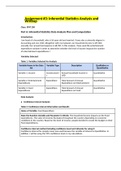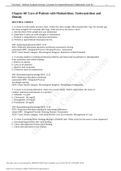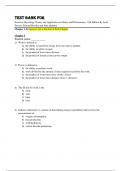Essay
A level Religious Studies Edexcel Essay: Evaluate the view that the problem of suffering shows that ideas about the nature of God are inconsistent (30/30)
- Institution
- PEARSON (PEARSON)
An essay on the problem of evil and suffering that evaluates how this affects the ideas of God. Achieved full marks.
[Show more]












